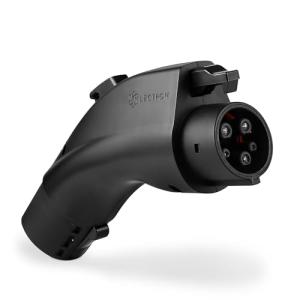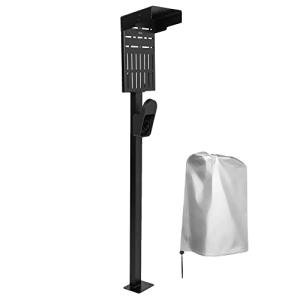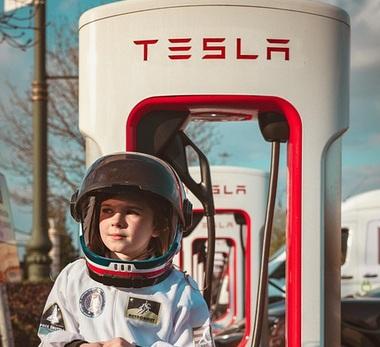When you're diving into the world of Electric Vehicle Charging Stations, it’s essential to find the right one for your needs. You don't want to settle for a charger that doesn't fit your lifestyle or your vehicle. There are a few key factors to consider that can make your decision a lot easier.
First up, think about charging speed. Do you want a super-fast charger, or is a standard charger good enough for your daily routine? If you plan to charge at home overnight, a Level 2 charger offers a nice balance of speed and convenience. But if you’re often on the go and need a quick boost, look for fast chargers that can get you back on the road in no time.
Next, consider compatibility. Different Electric Vehicle Charging Stations work with different car models. Always check if the charger fits your vehicle's plug type. Most EVs use either a J1772 or CCS plug, but it’s good to double-check. You don't want to invest in a charger that won’t work with your car!
Another important aspect is location. Are you planning to charge at home, work, or while traveling? If you need to charge at home, think about installation requirements and whether your garage has the right setup. If you're on the road, check out public charging stations along your route. Many tools and apps can help you find charging stations easily, so you won’t be left looking for a plug in a pinch.
Lastly, consider your budget. Chargers come in various price ranges, so it’s wise to set a budget before you start shopping. Look for units that offer good value without compromising on quality. You want something that lasts and meets your charging needs without breaking the bank.
Types of Electric Vehicle Chargers
When it comes to Electric Vehicle Charging Stations, knowing your options can make all the difference. There are several types of chargers out there, and each one has its own benefits depending on your needs.
First up, we have Level 1 chargers. These are the slowest option, usually using a standard 120-volt outlet. It's like charging your phone overnight - it takes time, but it gets the job done. If you drive less than 40 miles a day and can plug in at home, Level 1 might be all you really need.
Next, we have Level 2 chargers. These guys use a 240-volt outlet and charge your vehicle much faster, often taking just a few hours. If you’re looking for a solid option for home or a public charging station, this is it. They’re great for folks who need a quicker boost or have longer commutes.
Lastly, we have DC Fast Chargers. These are the superstars of Electric Vehicle Charging Stations. They provide a huge amount of power, allowing you to charge your EV in as little as 30 minutes. If you're on a road trip or need a quick charge during a busy day, these are must-haves. Just remember, they’re generally found at commercial locations, so plan your stops accordingly!
Lectron J1772 to Tesla Charging Adapter, 48 Amp
Charge your Tesla quickly and effortlessly with this reliable adapter that's perfect for any J1772 charger
Product information
$159.99 $118.99
Product Review Score
4.35 out of 5 stars
71 reviewsProduct links
Installation Tips for Home Chargers
Installing a home charger for your electric vehicle can feel a bit overwhelming, but it doesn't have to be! Here are some handy tips to make the process smoother.
First off, consider your electrical panel. Make sure it has the capacity to handle the new charger. Many home chargers require a dedicated circuit, so check if your panel has enough slots for that. If you're not sure, calling in an electrician for a quick assessment can save you headaches later.
Next, think about the location. You want your Electric Vehicle Charging Stations to be close to where you park your car. Make sure there's enough space to maneuver, and remember that you're going to want this charger to be accessible in various weather conditions. A sheltered area is always a plus.
When you choose a charger, look for one that suits your needs. Do you need a Level 1 charger for basic charging, or a Level 2 charger for quicker charge times? Research the features, like smart capabilities that let you monitor your charging from your phone or schedule charges during off-peak hours.
Finally, don’t forget about permits. Depending on where you live, you might need a permit for installation. Local regulations can vary, so check in with your city or town to avoid any surprises. Taking care of this upfront will save you time and keep things running smoothly.
VIVO Outdoor EV Charging Stand with Weather Hood
Keep your EV charged and protected from the elements with this sturdy outdoor charging stand
Product information
$99.99
Product Review Score
4.35 out of 5 stars
41 reviewsProduct links
Maximizing Your Charging Experience
Getting the most out of your electric vehicle charging stations can really amp up your driving experience. Whether you’re at home or on the road, knowing how to maximize your charging can save you time and money.
First off, always check the charging speed of the station you’re using. Not all stations are created equal! Some can charge your car super fast, while others might take their sweet time. If you know you’ll be at a location for a while, look for Level 2 or DC fast chargers. These will juice up your battery quicker than a standard outlet.
Next, consider your charging schedule. Use your vehicle’s app to set charging times when electricity rates are lower, usually at night. This can help you save on energy costs. Plus, many electric vehicle charging stations offer incentives during off-peak hours, so it’s a win-win!
Make sure to keep your vehicle's battery in good shape. Avoid letting it drop to super low levels before charging. Most experts suggest keeping it between 20% and 80% for optimal battery life. This way, your car stays happy, and you avoid emergency charging situations.
Lastly, always plan ahead. Use apps or websites to locate electric vehicle charging stations on your route. This way, you won’t be caught off guard with a low battery. With a little prep, you can enjoy a smooth ride without the stress of running out of juice!



